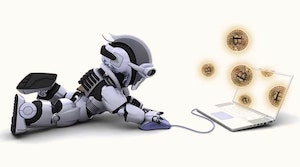TOKYO, Oct 27 (News On Japan) - AI tools are increasingly finding their way into Japan’s classrooms, from language practice to career counseling. Among them is the “AI University Lecturer,” developed by DOU Inc., a system designed to supplement human instruction by providing tailored support to each student based on their academic data.
DOU CEO Tatsuya Ishibe says the goal is not to replace professors, but to extend learning beyond classroom hours.
Through customized versions of ChatGPT, universities can create their own AI lecturers that understand what each student has studied, their assignments, and even performance data. The AI can then offer personalized guidance — from helping a student prepare for an English test to discussing possible career paths. Ishibe explains that unlike general-purpose chatbots, DOU’s system integrates with school databases, automatically syncing homework, reports, and grades. “When a student talks to the AI, it already knows what they’ve been studying,” he said.
The service, currently implemented at Chiba Institute of Technology and other schools, acts more like a teaching assistant than a professor — available through a smartphone or computer to help students after class. It suggests exercises, tracks progress, and even prompts new tasks, while real professors handle in-person instruction.
Still, Ishibe acknowledges that some students use AI to avoid effort. “Of course, some will ask it to write their reports at the last minute,” he admits. “AI can become a tool for procrastination — it depends on the person’s motivation.” He stresses that DOU’s system is designed for those who want to learn but don’t know where to start, allowing them to take the first step rather than do the work for them.
The tool is already showing measurable results, particularly in job-hunting support. For example, students use the AI for self-analysis and to write entry sheets — a key step in Japan’s hiring process. But Ishibe points out that companies are aware many students rely on AI. “Even if someone uses AI to write their entry sheet, the people who get hired probably wouldn’t change,” he said. “Those who have done real work will still stand out during interviews.”
He sees this as evidence that AI doesn’t erase individuality but instead helps more students reach the point of applying confidently. “The real value is in encouraging people who thought they couldn’t apply to try,” Ishibe said.
At the same time, he argues that the essence of education remains human. “AI can suggest, but it doesn’t decide,” he said. “Only people can make choices, manage progress, and motivate others.” Ishibe envisions a hybrid model where AI provides structured support while teachers continue to inspire and guide.
Looking ahead, DOU plans to expand its AI lecturers beyond universities into high schools, helping younger students discover interests and navigate Japan’s increasingly diverse academic landscape. “AI can show paths teachers might not know,” Ishibe said. “But in the end, it’s still up to each student to choose their own way.”
Source: Kyodo















